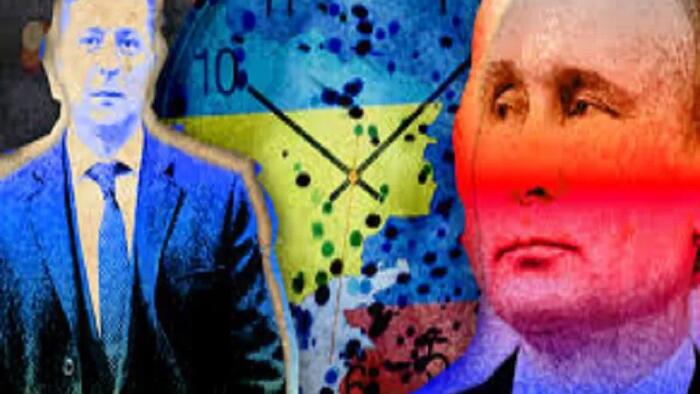In a recent analysis authored by Andrew Korybko, the complexities surrounding the ongoing conflict in Ukraine, particularly in light of Donald Trump’s proposed peacekeeping plan involving Western/NATO forces, are explored. The article suggests that this plan imposes a strategic dilemma on Russia, forcing it to choose between a preemptive offensive or acceptance of a new status quo that could entail further crossings of its established ‘red lines’. With reports indicating the creation of an 800-mile demilitarized zone patrolled by Western troops, Russia’s longstanding objectives — namely, to demilitarize, denazify, and restore Ukraine’s constitutional neutrality — face significant hurdles, especially given the evolving geopolitical climate. Russia’s nearly 1000-day military engagement now bears a more urgent character, as the potential entry of conventional Western forces could lead to a drastic escalation of the conflict into a larger confrontation with NATO.
The initial goals of Russia’s military operation, as outlined in the article, include the immediate demilitarization of Ukraine and efforts to ensure its constitutional neutrality. Yet, the reality of the situation has shifted dramatically since the early phases of the conflict in 2022. Korybko points out that the failure of peace talks in early 2022, influenced by Western backing and military aid to Ukraine, has rendered Russia’s aspirations increasingly unrealistic. The goals of demilitarization and denazification hinge on political agreements that Ukraine, under Zelensky’s leadership, has shown little willingness to accommodate, especially in the wake of substantial NATO arms support. As such, Russia has found itself in a position where military control over Ukraine, vital for enforcing these maximum goals, appears unattainable.
Korybko emphasizes the challenge Russia faces in denazifying Ukraine, suggesting that substantial political concessions are now improbable after missed opportunities for compromise. The author argues that, to achieve denazification, Russia requires legislative changes within Ukraine that seem highly unlikely under current conditions. The article notes that without a political climate conducive to these changes, any Russian attempt to enforce denazification would not only be met with resistance but could also escalate tensions significantly. The role of the West, particularly in offering security guarantees to Ukraine, complicates Russia’s position further as it addresses the ongoing Ukrainian military’s capacity to resist effectively.
With respect to restoring Ukraine’s constitutional neutrality, Korybko underlines that existing security guarantees from NATO serve to perpetuate Ukraine’s alignment with the West rather than facilitating a peaceful compromise. He articulates that while restoring constitutional neutrality might appear feasible, it ultimately hinges on Ukraine’s willingness to backtrack on strategic aspirations that have become entrenched since the conflict began. The dynamics of the situation further underscore how, lacking military leverage to impose compliance, Russia’s objectives are increasingly becoming a distant reality as the conflict drags on without resolution.
The possibility of Western intervention looms large, according to Korybko. He asserts that Russia is under mounting pressure to act decisively before such forces are deployed, as this would alter the equation significantly. By analyzing various scenarios, the article delineates three potential strategies for Russia: escalate its military operations preemptively to achieve its goals, adopt a wait-and-see strategy to counter potential interventions, or acquiesce to the new geostrategic reality by freezing the conflict where it lies. Each option carries its own risks and potential repercussions, leading to a calculation of whether military escalation is worth the gamble of triggering broader confrontation with NATO.
Korybko concludes with a reflection on Russia’s current strategic silence. He posits that the country’s hesitance may indicate a period of reflection as the Kremlin weighs its options in light of rapidly changing events. Citing historical perspectives, he suggests that alertness is critical, as the potential deployment of Western/NATO peacekeepers could significantly inhibit Russia’s previous objectives. The article encapsulates the tensions and inherent challenges facing Russia as it navigates a complex and evolving landscape, where decisive action may soon be necessary to safeguard its interests against escalating Western involvement in Ukraine. The outcome of these decisions will likely shape both the immediate future of the conflict and the broader geopolitical relationships at play in the region.

